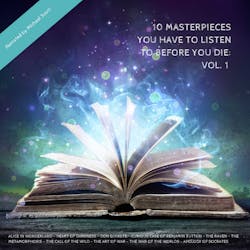The Seventh Letter Plato - The Seventh Letter of Plato is an epistle that tradition has ascribed to Plato. It is by far the longest of the epistles of Plato and gives an autobiographical account of his activities in Sicily as part of the intrigues between Dion and Dionysius of Syracuse for the tyranny of Syracuse. It also contains an extended philosophical interlude concerning the possibility of writing true philosophical works and the theory of forms. Assuming that the letter is authentic, it was written after Dion was assassinated by Calippus in 353 BC and before the latter was in turn overthrown a year later.Of all the letters attributed to Plato, the Seventh Letter is widely considered the only one that might be authentic. R. Ledger defends its authenticity on the basis of computer analysis. Anthony Kenny is likewise inclined to accept it as genuine. The main objections to its authenticity involve its statement that there are forms or ideas of artificial things, whereas Aristotle attributes to Plato the idea that there are forms or ideas only of natural things, as well as the fact that the letter's purported historical setting seems unlikely: the letter implies that Dion's followers wrote to Plato asking him for practical political advice while at the same time insinuating that he had not been loyal to Dion, that Calippus permitted the letter to get to Plato, and that Plato replied by recounting in detail recent history to people who were immediately involved in those events and included in his advice a long digression on the theory of forms. These problems lead R. G. Bury to conclude that the letter was an open letter intended to defend Plato in the eyes of his fellow Athenians rather than to be sent to Dion's followers in Sicily; there probably never was any letter from them to Plato, he says.Nevertheless, the Seventh Letter has recently been argued to be spurious by prominent scholars such as Malcolm Schofield, Myles Burnyeat, George Boas, Terence Irwin, and Julia Annas. According to Annas, the Seventh Letter is "such an unconvincing production that its acceptance by many scholars is best seen as indicating the strength of their desire to find, behind the detachment of the dialogues, something, no matter what, to which Plato is straightforwardly committed."

90 Masterpieces You Must Read (Vol.1) : Novels, Poetry, Plays, Short Stories, Essays, Psychology & Philosophy: The Madman, Moby-Dick, Siddhartha, Crime and Punishment, Hamlet, Great Expectations, Little Women, Meditations, The Einstein Theory, Heart of Darkness, The Red Badge of Courage
Walt Whitman, Herman Hesse, George Eliot, Kahlil Gibran, Anton Chekhov, Herman Melville, Oscar Wilde, Fyodor Dostoevsky, Nikolai Gogol, James Joyce, Henry David Thoreau, William Shakespeare, T. S. Eliot, John Keats, Charles Baudelaire, Walter Scott, Daniel Defoe, Louisa May Alcott, Jane Austen, Charlotte Brontë, Emily Brontë, Anne Brontë, Leo Tolstoy, Benito Pérez Galdós, William Makepeace Thackeray, Pierre Choderlos de Laclos, R.D. Blackmore, Alexandre Dumas, Marcel Proust, D. H. Lawrence, Charles Dickens, Thomas Hardy, Henry James, Guy de Maupassant, Princess Der Ling, Victor Hugo, Juan Valera, Anthony Trollope, Stephen Crane, E. M. Forster, Theodore Dreiser, Margaret Cavendish, Upton Sinclair, Plato, Apuleius, Marcus Aurelius, Sun Tzu, Voltaire, Miguel de Cervantes, Giovanni Boccaccio, Frederick Douglass, Sigmund Freud, H. A. Lorentz, Wallace D. Wattles, James Allen, Agatha Christie, Arthur Conan Doyle, Joseph Conrad, H. P. Lovecraft, Washington Irving, Mary Shelley, H. G. Wells, Edgar Allan Poe, Ernest Hemingway, L. Frank Baum, Robert Louis Stevenson, Mark Twain, Selma Lagerlöf, Jack London, Jules Verne, Lewis Carroll, Frances Hodgson Burnett, Rudyard Kipling, George Bernard Shaw, Soseki Natsume, Johann Wolfgang Goethe, Edgar Rice Burroughs, Brothers Grimm, Hans Christian Andersen
book
Des Sokrates Verteidigung
Plato
audiobook
Plato's Crito
Plato
audiobook
Plato's Ion
Plato
audiobook
Des Sokrates Verteidigung
Plato
audiobook
10 Masterpieces You Have to Read Before You Die, Vol.5 : The Odyssey, The Republic, Meditations, The Divine Comedy, Faust and others
Homer, Plato, Aristotle, Marcus Aurelius, Niccolo Machiavelli, Dante Alighieri, Johann Wolfgang Von Goethe, Leo Tolstoy
audiobookbook
Plato: The Complete Works (31 Books) : Timeless Philosophical Masterpieces
Plato, Redhouse
book
Plato: The Complete Works (31 Books) : The Definitive Collection of Philosophical Classics
Plato, Moon Classics
book
Plato: The Complete Works (31 Books) : The Definitive Collection of Philosophy's Greatest Dialogues
Plato, Classics for all
book
25+ The Big Book of Ancient Classics : The Odyssey by Homer, Meditations by Marcus Aurelius, The Republic by Plato, Poetics by Aristotle and others
Aristotle, Aeschylus, Marcus Aurelius, Euripides, Hesiod, Homer, Plato, Sappho, Sophocles
audiobook
Alcibiades 1
Plato
audiobook
10 Masterpieces You Have To Listen To Before You Die: Vol. 1
Lewis Carroll, Joseph Conrad, Miguel de Cervantes, F. Scott Fitzgerald, Edgar Allan Poe, Franz Kafka, Jack London, Sun Tzu, H.G. Wells, Plato
audiobook
